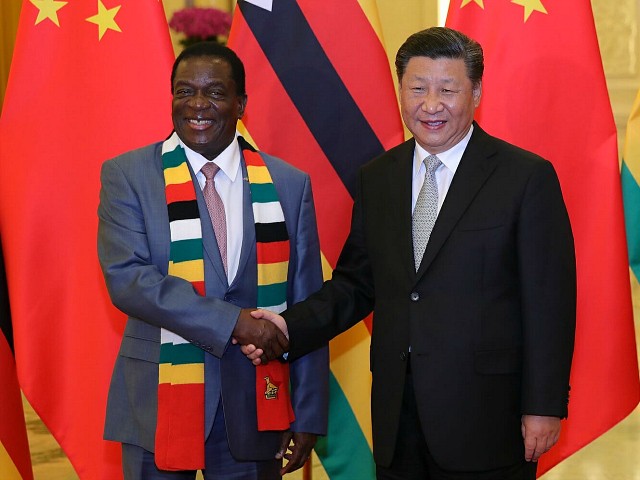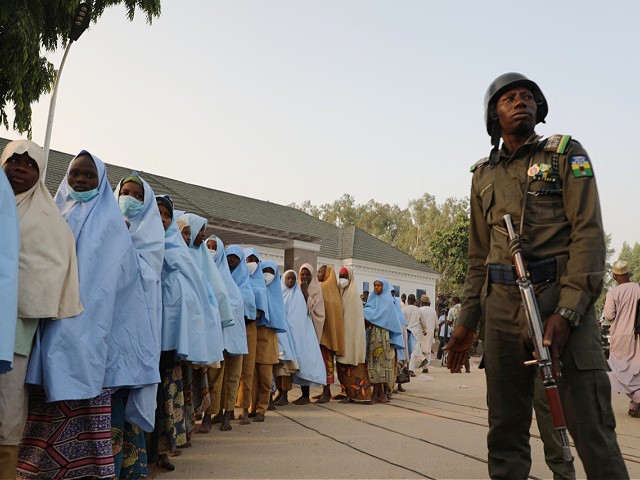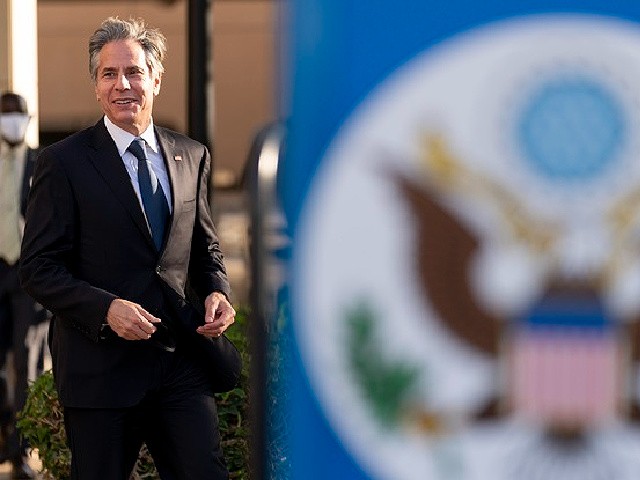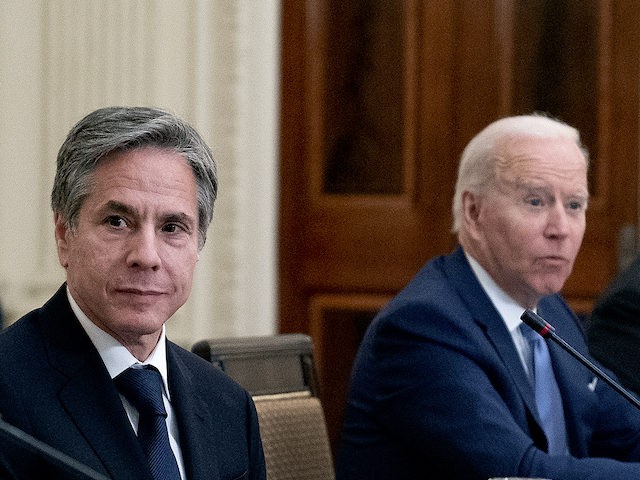Secretary of State Antony Blinken touted the Biden administration’s eagerness to invest in Africa during a weekend trip to the continent, obliquely criticizing China’s debt-fueled infrastructure projects without directly naming them and downplaying long-standing U.S. human rights criticisms of certain African governments.
Blinken’s extremely delicate criticism of China’s Belt and Road Initiative (BRI) was delivered during a signing ceremony in Senegal’s capital of Dakar for Memoranda of Understanding (MOUs) between four American companies and the Senegalese government. Three of the MOUs were for transportation infrastructure projects, while the fourth concerned improving Senegal’s digital communications network.
“We hope to drive a race to the top with global infrastructure projects to close the gap while creating local jobs, protecting workers and the environment, reducing corruption, and all of that without saddling countries with debts that can be unmanageable,” Blinken said, delivering a heavily veiled jab at China.
In other remarks on Friday, Blinken said African nations are too often “treated as junior partners – or worse – rather than equal ones.” Once again, he refrained from naming China as the nation that treats African governments like junior partners.
Blinken’s comments were similar in essence to those of his Trump administration predecessor Mike Pompeo, who also warned African leaders to “be wary of authoritarian regimes with empty promises.”

Chinese President Xi Jinping (R) shakes hands with Zimbabwe’s President Emmerson Mnangagwa at a meeting at the Great Hall of the People in Beijing on September 5, 2018, a day after the conclusion of the Forum On China-Africa Cooperation. (Photo credit should read LINTAO ZHANG/AFP/Getty Images)
Analysts during the Trump years warned developing nations of China’s “debt-trap diplomacy” and “debt colonialism,” a strategy in which China made gigantic loans through BRI that could never be repaid, often for projects that made little economic sense.
Chinese companies handle most of the crucial work on these projects, so there is minimal benefit to local job markets, and BRI projects are usually structured so China profits much more than its African partners. When heavily indebted BRI clients fall behind on paying their loans from Chinese banks, important national assets useful to Beijing’s strategic ambitions can be taken as collateral.
The New York Times (NYT) saw Blinken taking a “lighter touch” against Beijing’s influence in Africa, avoiding “inflammatory rhetoric that could set back delicate efforts at detente with China.” Even the far-left NYT worried Biden’s approach will require the U.S. to follow China’s lead in abandoning human rights and democracy concerns so it can make no-strings-attached deals competitive with those offered by Beijing.
Blinken briefly complained about police brutality toward demonstrators but, for the most part, he praised Nigeria’s “vibrant democracy.” Nigerian media reported nothing but gratitude from Blinken for Nigerian cooperation on counterterrorism efforts and the coronavirus pandemic.
Human rights activists were stunned last week when the Biden administration quietly dropped Nigeria from the 2021 list of “Countries of Particular Concern” for religious persecution. Nigeria was also dropped from the second-tier “Special Watch List” of religious persecutors by the State Department.
The U.S. Commission on International Religious Freedom (USCIRF), a federal government commission established in 1998 to monitor religious persecution, said it was “disappointed” and “especially displeased” the Biden State Department removed Nigeria from the list of religious persecutors, over the Commission’s strenuous objections.
USCIRF noted the State Department’s own reporting made it clear Nigeria is still a country of deep concern for religious freedom.

A soldier stands next to a group of girls — previously kidnapped from their boarding school in northern Nigeria — on March 2, 2021, at the Government House in Gusau, Zamfara State upon their release. (Photo by -/AFP via Getty Images)
International Christian Concern (ICC), a religious freedom advocacy group, said it was “shocked” to see the Biden administration drop Nigeria from its watch lists. The ICC, on the other hand, named Nigeria one of its top “Persecutors of the Year.”
“The Nigerian government has done almost nothing to stop the violence against Nigerian Christians, leading to continued violent persecution. In some instances, as with Kaduna’s Governor El-Rufai, the Nigerian government has even furthered the violence,” charged ICC President Jeff King.
King was referring to Malam Nasir el-Rufai, the governor of Kaduna state in Nigeria. In November, the governor reactivated a decades-old edict that criminalized preaching — a rule the ICC noted bore an “uncanny resemblance” to the “extremely oppressive” laws against religion in China.
El-Rufai also stoked resentment between Muslim and Christian populations for political gain, to the great exasperation of former Nigerian President Goodluck Jonathan, who accused the governor of setting himself up to be arrested so he could posture as a victim of anti-Muslim persecution.
The Associated Press (AP) noted that Blinken was literally walking in the shadow of Belt and Road during much of his Africa trip as his motorcade rolled past expressways and office buildings constructed by China.
The AP thought African officials were speaking “partially in jest” when they seemed to welcome Blinken’s tepid suggestion to make Washington and Beijing compete for their business. Senegal, for example, was preparing to host a major trade expo with China within ten days of Blinken’s departure.

U.S. Secretary of State Antony Blinken arrives to speak to employees at the US Embassy in Dakar, on November 20, 2021, as part of Blinken’s five-day trip to Kenya, Nigeria, and Senegal. (Photo by ANDREW HARNIK/POOL/AFP via Getty Images)
The AP noted Biden’s string of catastrophes and blunders, especially his Afghanistan debacle, has not inspired African leaders to see his administration as a competent and competitive strategic partner. Also, authoritarian African governments are likely to feel more kinship with China, a nation that will never hassle its business partners about doing whatever it takes to stay in power.
Even if Biden offers more concessions on human rights, the leaders of developing nations are worried about American environmental demands. China’s patronage is the best way to keep criticism from the climate change movement muted.
The NYT quoted Nigerian Foreign Minister Geoffrey Onyeama making precisely this point, as he worried about Western banks and governments defunding carbon-emitting energy projects needed by developing nations as “transition fuel” before they can think about working toward “net zero” emissions. Onyeama strongly hinted the West will need to back down from its net-zero demands if it wants to compete with China for African business.

COMMENTS
Please let us know if you're having issues with commenting.